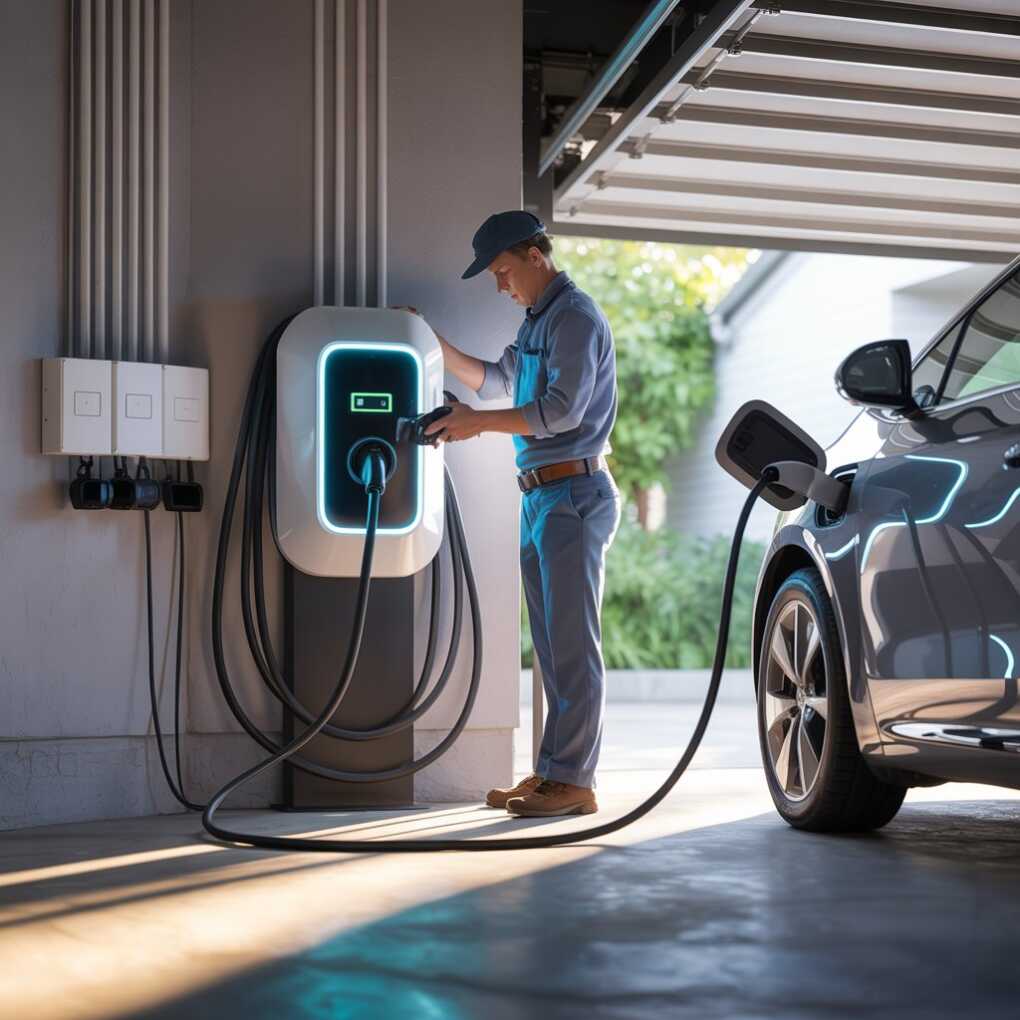As electric vehicles become a more common sight on roads across the country, more homeowners are realizing the value of having a home charging station. While public chargers are increasing in number, they still fall short in terms of convenience, reliability, and practicality compared to a home setup. Charging your vehicle at home can reduce costs, improve your daily schedule, and support a more sustainable lifestyle. For households investing in an electric car, installing a home charger is more than a modern upgrade—it’s a decision that offers long-term value and freedom.
We will explore the top reasons why making this investment can transform the way you interact with your vehicle, enhance your home’s value, and contribute to a greener future. Whether you’re considering your first EV or already own one, understanding the full range of benefits can help you make a confident and forward-thinking choice.

Why a Home EV Charger Is Worth the Investment
Unmatched Daily Convenience and Time Savings
Charging your EV at home offers an unmatched level of convenience that is hard to replicate with public stations. No longer do you have to plan your day around finding a charging location, waiting in line, or sitting for an extended period while your car powers up. With a home EV charger, your vehicle begins charging the moment you plug it in, typically overnight. This simple shift means you start every day with a full battery, giving you peace of mind and complete control over your schedule. For those considering EV Charger Installation in Vancouver, this level of everyday convenience becomes a practical advantage, especially in a city where reliable public charging may not always align with your routine.
For many EV owners, this convenience eliminates the common stress associated with range anxiety. There’s no need to carve out extra time in your day or change routes just to top off your charge. The charger is always available, never in use by someone else, and doesn’t require a subscription or service fee. Over time, these small everyday efficiencies create a smoother, more enjoyable driving experience and free up hours in your week.
Lower Long-Term Charging Costs and Energy Efficiency
One of the clearest financial advantages of a home charger is the reduction in long-term charging expenses. Public charging stations, particularly fast-charging units, often come with service fees that can drive up the cost of maintaining an electric vehicle. By charging at home, you benefit from standard residential electricity rates, which are often significantly lower. Additionally, if your local utility provider offers off-peak pricing—typically during overnight hours—you can set your charger to operate during those times, further reducing your energy bill. With smart chargers, you can track energy consumption and adjust usage to get the most cost-effective results.
For homeowners using solar panels or renewable energy sources, the savings multiply. By powering your vehicle with energy generated on-site, you’re not only avoiding fuel costs but maximizing your home’s energy independence. This level of efficiency, both in financial and environmental terms, makes home charging a forward-thinking solution for energy-conscious drivers.
Increased Home Property Value and Market Appeal
Home upgrades that support modern technology and sustainable living often translate into increased property value, and a home electric vehicle charger fits squarely into that category. As the demand for EVs rises, so does interest in homes that are ready to support them. A dedicated Level 2 charger, properly installed and integrated into your garage or driveway setup, sends a strong message to future buyers: this home is designed for modern lifestyles. While not all appraisers currently account for EV charger installations in home valuations, trends indicate a growing appreciation for this amenity.
It not only sets your property apart in competitive housing markets but also aligns it with environmentally conscious buyers. For households considering resale in the next few years, having a home charger already in place can tip the scale for prospective buyers who already own or plan to own an EV. It becomes a subtle but powerful selling point that can increase both interest and offers.
Greater Control Over Vehicle Maintenance and Battery Health
When using public chargers, especially high-speed DC fast chargers, there’s a risk of long-term impact on battery health due to rapid charging cycles. Home chargers, particularly Level 2 systems, allow you to maintain a more consistent and moderate charging rate. This helps protect your battery’s longevity and contributes to the overall health of your vehicle. Furthermore, with home charging, you avoid the wear and tear associated with constantly plugging in at outdoor or heavily used public stations.
You gain more control over how frequently and to what extent your battery is charged, allowing you to adopt more battery-friendly habits. Some home systems come with programmable settings or integrate with vehicle software to further support efficient energy use. This level of control not only supports the performance and durability of your EV but also gives you more predictable results in daily driving. Over time, this translates to fewer maintenance costs and a better overall return on your vehicle investment.
Conclusion
Installing a home electric vehicle charger is a practical and forward-looking investment for any EV owner. It delivers daily convenience, lowers long-term costs, and enhances the energy efficiency of your household. It also positions your home as a future-ready property that appeals to buyers seeking sustainable amenities. From maintaining your vehicle’s battery health to promoting a cleaner planet, the advantages stretch well beyond the driveway. We have explored how a home EV charger not only enhances the ownership experience but also unlocks a range of financial, practical, and environmental benefits. As electric vehicles continue to gain momentum, deciding to bring charging capability home ensures that you’re not just keeping up but staying ahead.
